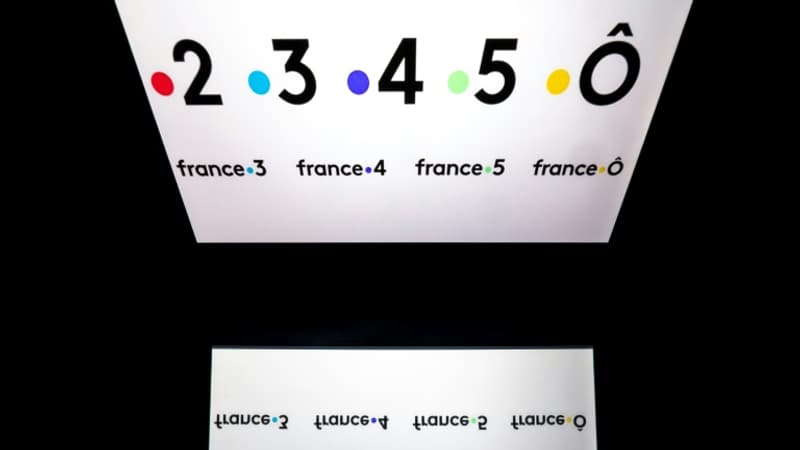Is this the start of a big bang in public broadcasting? The Senate is examining a bill starting this Monday whose emblematic measure takes up, three years after its abandonment by the Executive, the controversial idea of a holding company that supervises France Télévisions and Radio France. An offensive that is joined by a parliamentary report and a claim by the Association of Private Channels on public service advertising.
The text presented to the Senate is carried by the president of the Culture Commission of the Upper House, the centrist Laurent Lafon. In a context marked by profound changes, with the development of platforms, social networks or even connected television, the senator intends with this bill to ensure France’s “audiovisual sovereignty”.
The Covid health crisis had caused in 2020 the abandonment of the audiovisual bill by the then Minister of Culture, Franck Riester, pledging to consolidate the public audiovisual.
Consolidate all public broadcasting into one holding company
The bill, which has just begun its parliamentary journey, proposes the creation of a holding company, called France Médias, made up of four subsidiaries, France Télévisions, Radio France, France Médias Monde (RFI and France 24), as well as the National Institute of the Audiovisual (Ina), which would go from being a public establishment to being a company. 100% owned by the State, this holding would be established on January 1, 2024.
But, during their hearings, the heads of public broadcasting showed their reluctance. “I’m not sure that’s the priority at the moment,” Delphine Ernotte, CEO of France Télévisions, responded in April, while Marie-Christine Saragosse, CEO of France Médias Monde, declared “not in favor of a superstructure”.
These arguments will be developed in the Senate chamber by opponents of the creation of a holding company. For the Socialists, “it will accentuate the fragility of the public sector” and “it will only benefit private operators, by reinforcing the phenomenon of concentration in the media.”
Support from the right-wing majority in the Senate
According to Julien Bargeton (RDPI with Renaissance majority), it is imperative “to focus the efforts of public audiovisual companies on improving the visibility, impact and quality of their offers at the service of all French people”.
The rapporteur, LR Jean-Raymond Hugonet, for his part, considers that the provisions of the bill “make it possible to reconcile the different approaches in terms of consolidation, since they create the holding France Médias, considering that this light and strategic structure will constitute a step before a merger of the different entities.
Just a year ago, Jean-Raymond Hugonet and Roger Karoutchi (LR) proposed in a report to merge France Télévisions, Radio France, France Médias Monde and Ina from 2025 into a single public company.
Debate on sports rights
As for the financing of public broadcasting which, after the abolition of the license fee, still has to be made permanent beyond 2024, the bill effectively excludes the route of a subsidy. It establishes the principle of a public resource “fiscal, sustainable, sufficient, predictable” and taking inflation into account.
The second part of the bill aims to fight against the “asymmetries” of competition in the sector and, in particular, addresses the delicate issue of sports rights. In order to “promote everyone’s access to sporting events”, the text proposes in particular to extend to platforms the obligation imposed on pay channels to cede certain rights to free access television services broadcast on DTT.
Among other measures, it also intends to rebalance the distribution of value between broadcasters and producers, to “encourage the chains to invest more in quality productions.”
Culture Minister Rima Abdul Malak has not yet decided her position on the issue. If the National Assembly approves this proposal, it could be implemented from January 1, 2024.
Towards a new advertising framework from 8 pm?
At the same time, public broadcasting is the subject of a parliamentary report, presented last week. For the authors of this report, the deputies Jean-Jacques Gaultier (LR) and Quentin Bataillon (Renaissance), respectively president and rapporteur of the fact-finding mission on the future of public broadcasting in the National Assembly, it is about “reaffirming the singularity of public service”.
Among its recommendations: the elimination of advertising on France Télévisions channels -including program sponsorships- and on its digital platforms, such as France.tv, between 8:00 p.m. and 6:00 a.m. These proposals are in line with the 2009 law, sought by Nicolas Sarkozy, which eliminates late-night advertising on public channels.
They also call for “a gradual reduction of advertising, in all its forms, on public service television and radio.”
However, to compensate for the loss of advertising revenue from public broadcasting, the MEPs suggest the allocation “to the nearest euro, of a fraction of the collection of the tax on digital services”, which affects the largest companies in the sector.
The public-private battle is on
This is a sensitive issue for the public group that, for several weeks, has been fighting through the media with the Association of Private Channels (ACP), which groups TF1, M6, Canal + and Altice (owner of BFMTV). The ACP recently arrested Elisabeth Borne, accusing France Télévisions of unfair competition.
Thus, France 2 in particular would develop a “surprisingly commercial programming”, always according to the letter of the ACP. “In a particularly competitive television advertising market”, the ACP requests “that the rules be reaffirmed and cannot be circumvented, particularly with regard to advertising in digital applications or the prohibition of advertising after 8 p.m. in public ”, explained the association.
The letter provoked strong reactions from public channels. Pierre Lescure, columnist for Up to youon France 5, he described the offensive of the private channels as “quite mediocre”, to the microphone of BFM Business.
“Serving the public doesn’t mean being dusty, just doing what others don’t want to do anymore,” he adds. Therefore, each camp has sharpened its arguments. The battle for public broadcasting, open on several fronts, has only just begun.
Source: BFM TV


